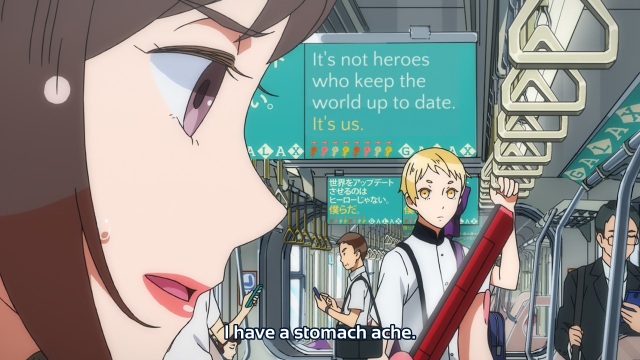I am now watching Kino’s Journey: The Beautiful World (also known as Tabi no Kino in Japanese). The series has an episodic, metaphorical, and allegorical nature, reminiscent of Gulliver’s Travels or Voltaire’s Candide, but more sombre. As such, I think it lends itself well to being watched one episode at a time, and also to being discussed, or kicking off discussion, so that’s what I aim to do. The first four episodes have been posted before, but had been put on hold due to how much energy writing them demanded of me. I’m excited to resume the journey once more, and will be bringing over the older comments as well.
There will be a new post on the second (or third if it begins early) Monday of every month (next post: March 11th) , each covering one episode of Kino’s Journey, or the films. You can buy the series here, or watch it dubbed on Hulu here, if you live in the United States. Each write-up might differ in style, length, and focus. I might spend more time on the episode, its ideas, or what it made me think of, or feel. These write-ups assume you’ve watched the episode, and the discussion that’ll follow could be had on the episode, the points I raised, or the questions I pose. Well, let’s get to it.
(Also, sorry, I miscounted the weeks this month, which led to this post being a week late, sorry!)
Episode 2 – “A Tale of Feeding Off Others -I Want to Live-“
Is it just me, or did the head-slaver look like the “monk” from Princess Mononoke? Quite a bit, actually, and their characters are quite similar as well.
Questions Are Interesting:
Before we get further, I have a question, how many of you didn’t see where this will go from about halfway into the episode? I think the whole nature of the episode, and its title, and the fact this is a show more about human nature than random observations about nature, more or less told us it’d go something like that. I dunno, I think once they spoke of their “Homecoming Festival” I was sure. I did suspect them from the get-go, that they’d attack Kino after she caught the first rabbit. They just struck me as “off”.









